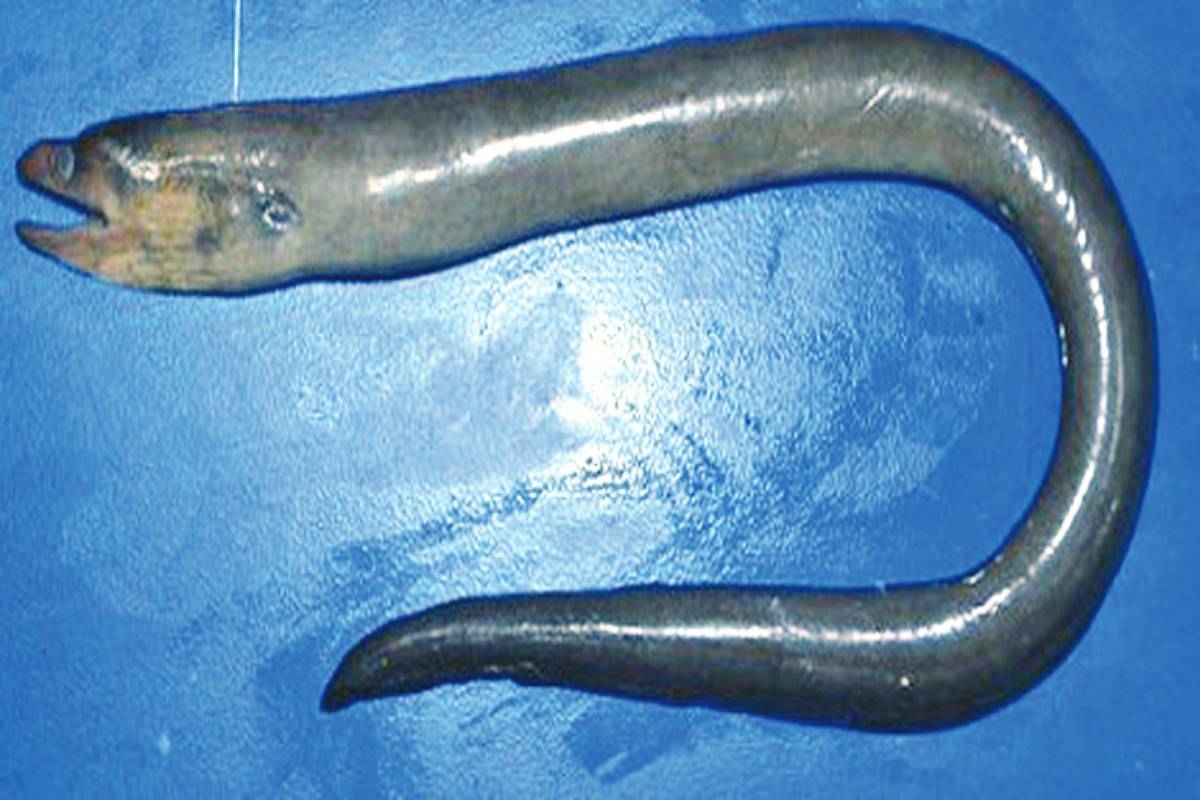City, adjoining districts could get rainfall, thunderstorm: Met
Kolkata along with other neighbouring districts could get rainfall, thunderstorm or even lightning tomorrow.
This is the fourth new eel species discovered by the ZSI scientists from the Odisha and Bengal coast in the past six years.
Statesman News Service | Kolkata | May 15, 2022 5:41 pm

Scientists of Estuarine Biology Regional Centre, Zoological Survey of India have discovered a new species of eel fish based on the four specimens collected from the Petuaghat Fish Harbour in East Midnapore of West Bengal, informs Dhriti Banerjee, director of ZSI, Kolkata.
Dr Dipanjan Roy of Bajkul Milani College in East Midnapore has earlier collected the four samples. The new species have been named Congreed eel by Dr Anil Mahapatra, scientists of Estuarine Biology Regional Centre in Gopalpur. He said that the fish belongs to the order Anguilliformes and the species varies genetically from many species of the genus Rhymchoconger.
Advertisement
The newly-discovered fish has been named as Rhynchocongersmitho in honour of the renowned ichthyologist Dr GC Smith.
Advertisement
“The species is distributed in the northern part of Bay of Bengal about a depth of 95 metre. The colour of the species is olive brown dorsally and pale ventrally. A silvery patch is also present from posterior margin of eye to gill opening. The discovery of the new fish species in the state has been already published in an international journal – Journal of Fish Biology,” added Dr Banerjee.
Fishermen have captured the new eel fish from a depth of around 95 metres by trawl net within the exclusive economic zone of the Indian Bay of Bengal, she said.
This is the fourth new eel species discovered by the ZSI scientists from the Odisha and Bengal coast in the past six years after Bengal moray eel, Odissi Eel , fringe – lip eel.
Eels are mostly found at the bottom of rivers and seas. A delicacy in countries like Japan and consumed mostly in coastal India, there are about 1,000 species of eels around the world while India has about 125 varieties of it.
As fishery and marine resources are depleting due to over exploitation and climate change including global warming and water contamination due to oil spillages and mixing of industrial toxic wastes, discovery of such new species is important for future food security, scientists believe.
Only recently, the scientists and researchers of ZSI have discovered a new catfish species in the Indo- Myanmar border and the first photographic evidence of Sambar in east Sikkim.
Advertisement
Kolkata along with other neighbouring districts could get rainfall, thunderstorm or even lightning tomorrow.
With the Midnapore Assembly by-election on 13 November, district authorities have significantly ramped up security measures, aiming to ensure a peaceful and orderly voting process.
Cyclone Dana has unleashed devastation across West Bengal, leaving the state’s agricultural economy reeling.
Advertisement
